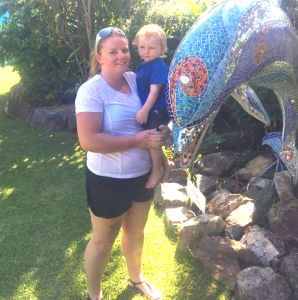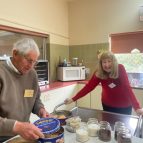Reducing homelessness

Across Australia on any one night around 115,000 people are homeless. And the numbers are on the rise with a 10% increase since the last Census and vacancy rates in many areas at a historic low.
Ipswich-based inCommunity Inc. is trialling an educational solution to the problem of finding stable accommodation.
‘We’ve supported thousands of young people and families out of homelessness since we started in 1982,’ says Paul Tommasini, CEO of inCommunity Inc. ‘The reasons people become homeless are varied, but most share in common the same obstacle to finding stable accommodation. And that’s the perception of real estate staff that they make risky tenants.’
After three months of meetings, visits and research to get a better understanding of the attitudes and perceptions of the real estate sector towards homeless people, inCommunity have come up with a training program to tackle the problem head on. And that meant coming up with a solution for both sides of the accommodation equation.
An effective training program had to give potential tenants a chance to prove themselves. ‘Our goal is to help people who are homeless or at risk of homelessness to access the private rental market and be good tenants. But if you’ve had problems with your tenancy in the past or you don’t have the knowledge and skills to be a good tenant or you have no previous tenancy experience and therefore no referees, the odds are stacked against you.’
But the program also had to address the issues raised by the real estate sector. ‘Our goal is also to help real estate agents mitigate their risk. If they have better tenants, they have lower risk.
‘The course has been a way to put in place something that addresses both these aims. Local real estate agents identified common problems and top fails in their interactions with current and prospective tenants. In their view, good tenants communicate effectively, understand their legal rights and responsibilities, regularly maintain and clean their property and effectively manage their finances.’
Essential skills for tenants
Using this feedback, the training covers four modules – communication skills, tenant’s rights and responsibilities, in-depth cleaning skills and budgeting. The face to face competency based program takes participants through a series of practical exercises and assessments. ‘In order for the real estate industry to take it seriously we needed a course that included enrolment and graduation and certificates demonstrating not just that people had showed up but they had mastered the skills we were offering.
‘We have a diverse group of students. Some are recently arrived migrants who can bring a support worker with them, others are young people who are just out of state care and about to go out and into their first home, others are people who are homeless or who are in shelters or refuges or are couch surfing. Our youngest student has been 16 and our oldest has been in their mid 50s.
Many potential tenants do not even get a chance to prove themselves because their application is not considered strong, and this is even worse in areas with low vacancy rates.
‘The content we’ve developed is very practical and is not demanding when it comes to literacy. Having said that when we do have people with low literacy the small group environment of 8–10 people is really good for working together and supporting one another.
‘Through the course people get a much better understanding
of how tenants are selected and how to improve their
chances. For example, if they arrive at an inspection and their
form isn’t filled out correctly or they are rude to the agency staff, these kinds of things will move them right down the list. Through our course we want to give them the skills to move their application to the top of the pile. ‘
A growing number of real estate organisations have endorsed the training and consider it in their assessment of applicants for housing and regard completion of the course as equivalent to having a previous rental history or references.
‘In the long term we’d love to see this sort of training given to all school leavers in the state so they have the skills needed to maintain a tenancy when they leave school,’ Paul Tommasini, CEO, inCommunity Inc.
‘We will be tracking progress at 3 month and 6 month points and sending a survey and seeking feedback from the real estate industry but we already know anecdotally through our networks with other support services that people who have been through the course are getting and holding onto housing.’
Anne-Aliese (pictured), is a 24 year old mother of a 2 year old. A year ago she left a violent relationship and spent time couch surfing until she was offered a place in a domestic violence refuge.
‘I had a rough time before I got to the shelter. Because I left the rental property where I’d been living before the end of the lease the agent said I had to pay an exit fee, as well as money for advertising and signage.’ To make things worse, she had no evidence of her rental history.
While she was at the refuge she took the course and is now living with her new partner and their combined six children. With a record of perfect inspections and no breaches she’s regarded as a model tenant.
‘I’m much more assertive dealing with real estate people now. Before the course I was happy to take whatever I got and never really asked questions. But having that knowledge and confidence really makes a difference. I’m much better now at negotiating to get what I need. For example, this latest property is NBN ready but it hadn’t yet been installed. So I was able to negotiate how that would be done and how the costs would be covered. It was a win–win for both of us.’
About the trial tenancy skills program
The 12-month trial funded through the Department of Housing and Public Works Dollars and Sense Initiative began in February 2018 and will finish in October 2018. It is currently running in Ipswich, Logan and Toowoomba and around 100 people have graduated out of a total of 230 funded places. Future plans include rolling the training program out across Queensland.
See the full issue of Quest 2, 2018










































































































